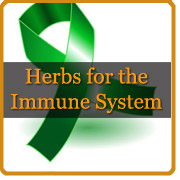











Diet is the key to success or failure when it comes to Lyme disease.
Life coach and Lyme warrior Patrick Slouck has developed a very successful nutritional and herbal diet that has transformed his health completely he know competes in Triathlon's and long distance runs. His personal story can be found on the left.
Let's start at the beginning:
 Simple facts about Western Diets:
Simple facts about Western Diets:
Our human body will overcome just about any virus if it were supplied with the right diet. The Human body is the most amazing thing on the planet; it's your best defense against Lyme attack or any virus for that matter. What most of us do not know about our digestive system is this little fact. Our bodies only receive 3% of the nutrients of the food we consume. Our human body was not designed to eat or consume cooked food. It was designed to eat raw fruits and vegetables and drink water……that's it! We don't follow that diet so well do we?
The Human Form has only changed 0.02% in 40,000 years. But look how our daily diet is nothing like our ancestors diet
The best way to beat Lyme disease in our opinion is to Juice your fruits and vegetables and add herbs to your drink daily, it's that simple.

Why juice you ask?
Juicing helps you absorb all the nutrients from the fruits and vegetables. 97% to be exact. Juicing allows you to consume an optimal amount of fruits and vegetables in an efficient manner. You can add a wider variety of fruits and vegetables in your diet.
Here is the problem with juicing: IT TASTES TERRIBLE!!!
 Making smoothies gives you a even better result than juicing because you can still liquefy your diet but a smoothie allows for even more ingredients that you could never put in a juicer. Like Flax Seed, Honey, Yogurt, Milk, Oatmeal, nuts, and of course GLYCONUTRIENTS
Making smoothies gives you a even better result than juicing because you can still liquefy your diet but a smoothie allows for even more ingredients that you could never put in a juicer. Like Flax Seed, Honey, Yogurt, Milk, Oatmeal, nuts, and of course GLYCONUTRIENTS
If you get on the right diet for you
Say Goodbye to Fatigue, Say goodbye to aches and pains, say goodbye bad vision, say goodbye to that brain fog, Say goodbye to all that crap it's GONE.
Below we will share with you some basic background info of nutrition that may be helpful to Lyme Patients.
There are MANY diet restrictions- while recovering from Lyme imposed by MDs familiar with the disease. One MUST review these restrictions with health professional familiar with them. In general, you need to avoid all excessive table sugars, desserts, sweet drinks, etc., though limited amounts of things like honey can be OK, if used with meals. The yeast diet restriction is real, as you can have your intestinal flora drift out of whack when you are on anti-biotics. This is called Candida
Potassium is an essential nutrient used to maintain fluid and electrolyte balance in the body. A deficiency in potassium causes fatigue, irritability, and hypertension (increased blood pressure).
 Cellular communication is literally the single most important concept in nutrition, and when we support this communication process we are empowering every single cell and every single part of the body to function the way it is supposed to. Sugars are now known
Cellular communication is literally the single most important concept in nutrition, and when we support this communication process we are empowering every single cell and every single part of the body to function the way it is supposed to. Sugars are now known
 to be the actual communicators between the cells in the body. It was long thought that the proteins that form on each cell were the communicators but this has proven to be wrong. If the cells do not have the correct sugars they will be unable to send the proper messages of what their needs are. If this communication is interrupted for too long the cell will die and if these sugars are missing in a large number of related cells then its tissue will die as well.
to be the actual communicators between the cells in the body. It was long thought that the proteins that form on each cell were the communicators but this has proven to be wrong. If the cells do not have the correct sugars they will be unable to send the proper messages of what their needs are. If this communication is interrupted for too long the cell will die and if these sugars are missing in a large number of related cells then its tissue will die as well.
The 8 sugars can be found in these elements
Kelp Powder
Fenugreek Powder
Shitake Mushrooms Powder
Psyllium Seed Powder
Shark Cartilage Powder
Aloe Vera Powder
Whey protein Isolate Powder
These are called Glyconutrients
Glyconutrients supplementation can increase the body's ability to attack and kill bacteria in tissue. Glyconutrients have the 8 sugars that are found on the planet of those eight sugars only 2 are found in our current diet.
"When I started making smoothies I knew the first thing I needed to do was build my immune system and I knew that started with cellular communication I tried Glyconutrients first, they were my foundation and guess what my cells did start to become super charged and I beat Lyme. It was amazing and I still feel better 3 years later and I still take Glyco's three years later basically daily. I owe my life to these little babies"
P.Slouck
Water
 Drinking a enough water each day can help you maintain a healthy lymphatic system. The lymphatic system requires a sufficient supply of liquids to function at its optimum level. You should drink a minimum of eight glasses per day for good health
Drinking a enough water each day can help you maintain a healthy lymphatic system. The lymphatic system requires a sufficient supply of liquids to function at its optimum level. You should drink a minimum of eight glasses per day for good health
Essential Fatty Acids
 A healthy, properly functioning lymphatic system requires an adequate intake of healthy fats. Good sources of healthy fats include nuts and seeds, such as flaxseeds, pumpkin seeds, almonds and walnuts. Other good sources include avocados and fatty fish, such as salmon, rainbow trout and sardines.
A healthy, properly functioning lymphatic system requires an adequate intake of healthy fats. Good sources of healthy fats include nuts and seeds, such as flaxseeds, pumpkin seeds, almonds and walnuts. Other good sources include avocados and fatty fish, such as salmon, rainbow trout and sardines.
Foods that treat inflammation:
Broccoli
Walnuts
Garlic
Pineapple
Spinach
Ginger & Turmeric
Salmon
Oranges, grapefruit, lemon, and limes
Blueberries, raspberries, strawberries and blackberries
Carrots, squash, and sweet potatoes
Example of our daily diet plan for you
• 1/2 cup raspberries
• 1/2 cup strawberries
• 1/2 cup blueberries
• 1 cup 2% milk /almond/coconut/soy/yogurt
• 1 cup apple juice (unsweetened) or one raw apple, banana or orange
• 2 cups ice / 2 tablespoons Aloe Vera Juice
• 1 small carrot
• Herbastat one teaspoon
That's just a simple example of the smoothies you will be making daily, if you add this regiment to your daily routine and drop a teaspoon of Herbastat into this smoothie:
Why do we have to boost the metabolism and/or feed our systems larger-than-normal amounts of vitamins, minerals, amino acids, etc? Because, it would seem, we're compensating for a leaky gut. Despite the research which shows that increased intestinal permeability problems are the cause of or complicates the lives of people with asthma, rheumatoid arthritis, IBS, or AIDS, and Lyme.
Any one of the following can cause a leaky gut:
• Antibiotics because they lead to the overgrowth of abnormal flora in the gastrointestinal tract (bacteria, parasites, candida, fungi)
• Alcohol and caffeine (strong gut irritants)
• Foods and beverages contaminated by parasites like Giardia lamblia, Cryptosporidium, Blastocystis hominis and others
• Foods and beverages contaminated by bacteria like Helicobacter pylori, Klebsiella, citrobacter, Pseudomonas and others
• Chemicals in fermented and processed food (dyes, preservatives, peroxidized fats)
• Enzyme deficiencies (e.g. celiac disease, lactase deficiency causing lactose intolerance)
• NSAIDS (non-steroidal anti-inflammatory drugs) like ASA, ibuprofen, indomethacin, etc.
• Prescription corticosteroids (e.g. prednisone)
• High refined carbohydrate diet (e.g. candy bars, cookies, cake, soft drinks, white bread)
• Prescription hormones like the birth control pill
• Mold and fungal mycotoxins in stored grains, fruit and refined carbohydrates
Leaky gut syndrome also creates a long list of mineral deficiencies because the various carrier proteins present in the gastrointestinal tract that are needed to transport minerals from the intestine to the blood are damaged by the inflammation process. For example, magnesium deficiency (low red blood cell magnesium) is quite a common finding in conditions like fibromyalgia despite a high magnesium intake through the diet and supplementation. If the carrier protein for magnesium is damaged, magnesium deficiency develops as a result of malabsorption. Muscle pain and spasms can occur as a result. Similarly, zinc deficiency due to malabsorption can result in hair loss or baldness as occurs in alopecia areata. Copper deficiency can occur in an identical way leading to high blood cholesterol levels and osteoarthritis. Further, bone problems develop as a result of the malabsorption of calcium, boron, silicon and manganese. (from the web page of Dr. Zoltan Rona, Toronto, Ontario).
Why do we have to boost the metabolism and/or feed our systems larger-than-normal amounts of vitamins, minerals, amino acids, etc?
Because, it would seem, we're compensating for a leaky gut. Despite the research which shows that increased intestinal permeability problems are the cause of or complicates the lives of people with asthma, rheumatoid arthritis, IBS, or AIDS, and Lyme.
Any one of the following can cause a leaky gut:
• Antibiotics because they lead to the overgrowth of abnormal flora in the gastrointestinal tract (bacteria, parasites, candida, fungi)
• Alcohol and caffeine (strong gut irritants)
• Foods and beverages contaminated by parasites like Giardia lamblia, Cryptosporidium, Blastocystis hominis and others
• Foods and beverages contaminated by bacteria like Helicobacter pylori, Klebsiella, citrobacter, Pseudomonas and others
• Chemicals in fermented and processed food (dyes, preservatives, peroxidized fats)
• Enzyme deficiencies (e.g. celiac disease, lactase deficiency causing lactose intolerance)
• NSAIDS (non-steroidal anti-inflammatory drugs) like ASA, ibuprofen, indomethacin, etc.
• Prescription corticosteroids (e.g. prednisone)
• High refined carbohydrate diet (e.g. candy bars, cookies, cake, soft drinks, white bread)
• Prescription hormones like the birth control pill
• Mold and fungal mycotoxins in stored grains, fruit and refined carbohydrates
Leaky gut syndrome also creates a long list of mineral deficiencies because the various carrier proteins present in the gastrointestinal tract that are needed to transport minerals from the intestine to the blood are damaged by the inflammation process. For example, magnesium deficiency (low red blood cell magnesium) is quite a common finding in conditions like fibromyalgia despite a high magnesium intake through the diet and supplementation. If the carrier protein for magnesium is damaged, magnesium deficiency develops as a result of malabsorption. Muscle pain and spasms can occur as a result. Similarly, zinc deficiency due to malabsorption can result in hair loss or baldness as occurs in alopecia areata. Copper deficiency can occur in an identical way leading to high blood cholesterol levels and osteoarthritis. Further, bone problems develop as a result of the malabsorption of calcium, boron, silicon and manganese. (from the web page of Dr. Zoltan Rona, Toronto, Ontario).
Foods High In Magnesium that help Leaky Gut.
Spinach
Canned spinach contains 163 mg of magnesium per cup. Fresh unsalted cooked spinach contains 157 mg of magnesium per cup.
Beet Greens
Beet greens contain 98 mg per cup.
Dates
Dates contain 77 mg per cup.
Okra
Okra(frozen) contains about 74 mg per cup.
Artichokes
Artichokes contain 71 mg per cup.
Peas
Peas contain 71 mg per cup.
Papayas
Papayas contain 64 mg per cup.
Potatoes
Unpeeled potatoes contain 57 mg of magnesium per cup.
Pumpkin
Canned pumpkin contains 56 mg per cup.
Sweet Potatoes
Sweet potatoes contain 56 mg per cup.
Collard Greens
Cooked collard greens contain 51 mg per cup.
Corn
Yellow corn contains 48 mg per cup.
Squash
Squash contains about 43 mg per cup.
Cucumber
Cucumbers with skin intact contain 39 mg per cup and 34 mg per cup if peeled.
Rutabaga
Rutabaga contains about 39 mg per cup.
Broccoli
Cooked broccoli contains about 33 mg per cup.
Banana
One banana has about 32 mg of magnesium.
Brussels Sprouts
Cooked Brussels sprouts contain about 31 mg per cup.
Grapefruit
Both pink and white grapefruits contain about 20.7 mg of magnesium
 Another side effect of LYME is Adrenal insufficiency is a condition in which the adrenal glands, located above the kidneys, do not produce adequate amounts of steroid hormones (chemicals produced by the body that regulate organ function), primarily cortisol, but may also include impaired aldosterone production (a mineralocorticoid) which regulates sodium, potassium and water retention. Craving for salt or salty foods due to the urinary losses of sodium is common.
Another side effect of LYME is Adrenal insufficiency is a condition in which the adrenal glands, located above the kidneys, do not produce adequate amounts of steroid hormones (chemicals produced by the body that regulate organ function), primarily cortisol, but may also include impaired aldosterone production (a mineralocorticoid) which regulates sodium, potassium and water retention. Craving for salt or salty foods due to the urinary losses of sodium is common.
Herbastat Herpes Cure | Herbal Treatments | Herbal Articles
This statement has not been evaluated by the FDA. This product is not intended to diagnose, treat, cure, or prevent any disease.
DISCLAIMER
The information provided on this Site is for educational purposes only. Please consult a physician before beginning any treatment program or making any adjustments in your health care, diet, and /or lifestyle. Do not remove yourself from any prescribed medications or treatments without consulting your doctor. Any and all dietary supplements or nutritional products discussed on this Site are not FDA-approved and are not intended to diagnose, treat, prevent, or cure any disease.
The information contained in this website is for general information purposes only. While we endeavor to keep the information up to date and correct, we make no representations or warranties of any kind, express or implied. . None of the dietary supplements or nutritional products discussed on this Site are FDA-approved, and they are not intended to diagnose, prevent, treat, or cure any disease or illness.
This Site and its services are for consumer educational use only. Nothing contained in this Site is or should be considered, or used as a substitute for, medical advice, diagnosis, or treatment. This site and its services do not constitute the practice of medicine. Users should always seek the advice of a physician with any questions regarding their health or medical conditions. Never disregard, avoid, or delay obtaining medical advice or following the advice of a physician because of something you have seen or read on this Site.
Antiviral herbs | Candida | Lyme info | Chronic lyme | Herpes | Herpes info | HSV | Lyme Disease | Herbs for dogs | Herbal Company | Viral infection | Healing lyme | Stress | Dealing with herpes
